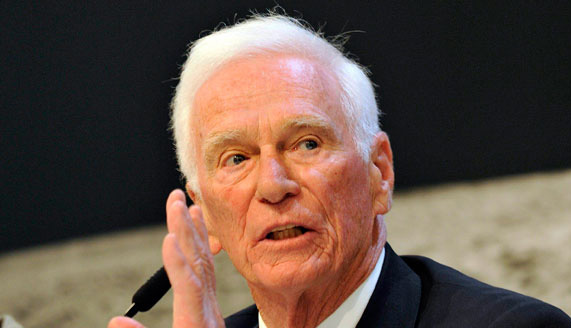It was 1972 when Capt. Eugene Cernan stepped off Apollo 17 and into history as the last man to walk on the moon.
For three days, Cernan and two other astronauts explored the lunar surface, took samples and viewed Earth from a vantage point experienced by fewer than a dozen people. When it was time to leave, Cernan was the last to step back onto Apollo.
“I sat on God’s front porch,” Cernan said in a telephone interview from his home in Houston. “I called the moon home for three days of my life. Sometimes it seems almost incredible. My life has been a fairy tale.”
Cernan, 80, will be in Maine this week to speak about his experiences and encourage local teens to pursue careers in science and space exploration. He and Karen McBride, who works on NASA’s Mars Exploration Program, will speak at the annual Salvation Army Champions for Kids benefit dinner on Thursday in Portland. The theme of this year’s dinner is “Exploring Space and Mars.”
Maj. Steve Ditmer of the Portland corps of The Salvation Army said the dinner is one of the organization’s largest fundraisers and helps fund programs that send 150 children to summer camp and assist families in crisis. Last year’s dinner raised roughly $80,000.
This year, event organizers reached out to local high school science, space and robotics clubs to recruit about 30 teens to meet with Cernan and McBride to talk about space exploration.
“We’re bringing in the next generation of space explorers and scientists in to meet them,” Ditmer said. “It’s pretty exciting. When I was a kid, you grew up with those moon launches when everyone was glued to the TV. This is like meeting a moon rock star.”
Cernan was a naval aviator for 20 years, including 13 years with NASA. He was the pilot of Gemini IX, the lunar module pilot of Apollo 10 and the commander of Apollo 17. He is the author of “The Last Man on the Moon.”
Four decades after his last trip into space, Cernan is still often asked what it was like – he has a hard time describing it – and to reflect on the significance of his time on the moon.
“What did it mean that we left and traveled a quarter-million miles through space? I didn’t have an answer then and I don’t have an answer now,” Cernan said. “I haven’t yet figured out what it meant.”
What Cernan is certain about is the importance of inspiring a new generation to be curious and excited about space exploration, especially as the focus shifts to Mars.
“There are not many of us left anymore,” Cernan said of the astronauts he worked with. “I personally feel we have an obligation to give something back to today’s generation, which is almost two generations removed from when we went to the moon.”
While Americans no longer huddle around their televisions to watch shuttle launches, Cernan believes there is still tremendous interest in space exploration, particularly as scientists learn more about Mars.
“I’m one who believes with certainty that humans are going to walk on Mars,” Cernan said. “It will happen.”
McBride, whose work on the Mars program at UCLA is funded by NASA, will speak about current and future research on Mars and what makes the red planet so enticing. Much of her focus will be on how robotics missions are paving the way for future exploration by humans.
“You can’t avoid learning something about Mars, even when you’re very young,” she said. “It’s so close. It’s a doable exploration for humans. This is a realistic goal of moving to another planet to explore and find out what’s going on.”
Gillian Graham can be contacted at 791-6315 or at:
Twitter: grahamgillian
Send questions/comments to the editors.




Success. Please wait for the page to reload. If the page does not reload within 5 seconds, please refresh the page.
Enter your email and password to access comments.
Hi, to comment on stories you must . This profile is in addition to your subscription and website login.
Already have a commenting profile? .
Invalid username/password.
Please check your email to confirm and complete your registration.
Only subscribers are eligible to post comments. Please subscribe or login first for digital access. Here’s why.
Use the form below to reset your password. When you've submitted your account email, we will send an email with a reset code.